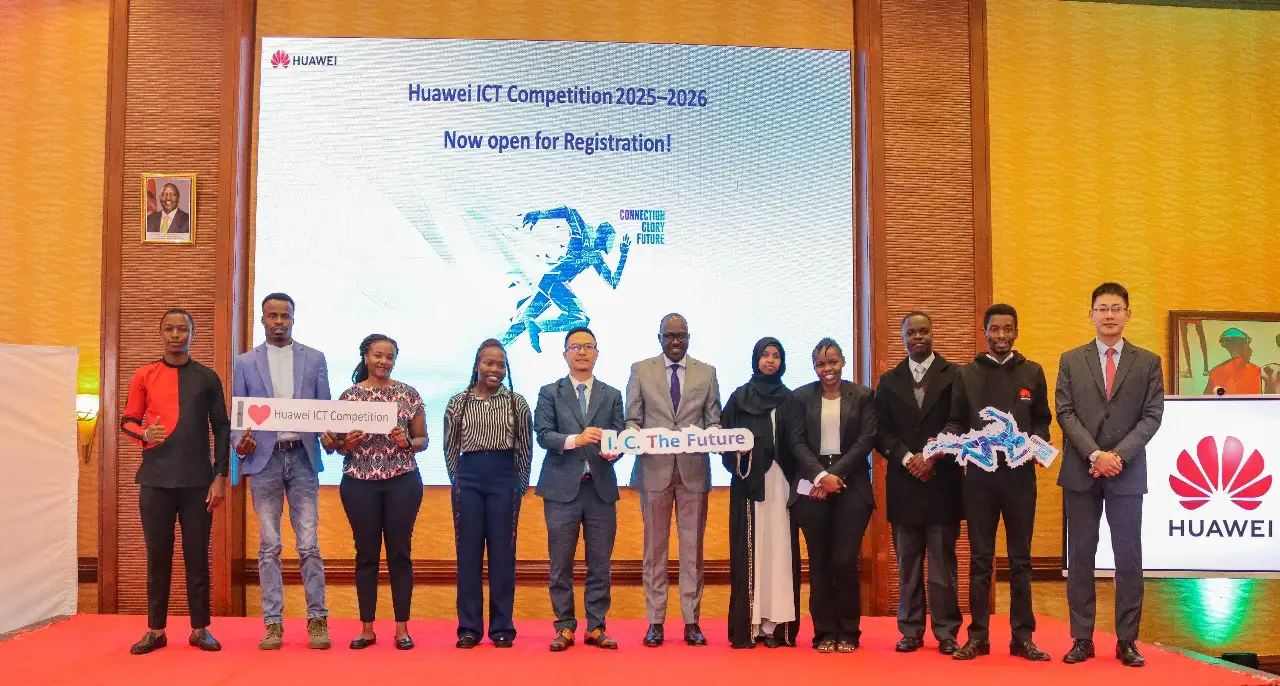Huawei has officially launched the 10th Edition of its ICT Competition in Kenya. The 2025 edition has a goal of doubling participation from the current 6,000 to 12,000 students. The program is run in partnership with the UNESCO Institute for Information Technologies in Education. It offers free training in artificial intelligence (AI), cloud computing, networking, and other emerging technologies.
National winners will progress to regional and global stages. They will also gain industry-recognised certifications, cash prizes, gadgets, and internship opportunities. According to Huawei, more than 12,000 Kenyan students have benefited from the program since its introduction in 2018, with many securing jobs in the ICT sector.
Speaking at the launch in Nairobi, National Assembly Speaker Rt. Hon. (Dr.) Moses Wetang’ula urged young people to embrace AI and digital skills to remain competitive in a rapidly changing job market. “This global competition has opened remarkable opportunities for youth in technology and the innovation space,” he said, adding that Parliament would continue to support enabling policies for ICT growth.
Dr. Esther Muoria, Principal Secretary at the State Department for Technical and Vocational Education and Training (TVET), said this initiative is “a shining example of the positive impact that partnerships can have on education and youth empowerment.” She noted that the competition has been particularly effective in identifying and nurturing top talent from TVET institutions.
Gender inclusion milestone
This year marks record female participation in the competition, building on previous successes that saw all-girl Kenyan teams winning global awards. Organisers say this demonstrates the program’s role in closing the gender gap in the country’s tech sector.
Bridging Kenya’s skills gap
The World Bank’s Future of Work Report 2025 warns that up to 40% of jobs could be automated. This creates an urgent need to equip youth with skills that make them ready for the market. There are still gaps that remain between formal education and industry needs, even though Kenya’s young population is tech-savvy.
Huawei’s ICT Academy has over 60 partner institutions in Kenya. The Academy addresses this by offering structured training in a number of fields including networking, cloud, AI, and cybersecurity. The company recently signed an MoU with the State Department for TVET to expand the program to 150 institutions annually. This included those in underserved regions.
Michael Kamau, ICTa Academy Program Manager at Huawei Kenya, said this expansion is key to ensuring no student is left behind: “With mentorship, hands-on labs, boot camps, and global certifications, students are gaining real skills that lead to real employment.”
Kenya’s push to train AI and digital talent aligns with broader continental ambitions. The African Union’s Digital Transformation Strategy (2020–2030) puts more weight on skills development to help boost Africa’s share of the global digital economy.
The initiative also supports Kenya’s National AI Strategy (2025–2030). It could help reduce youth unemployment by providing pathways into high-demand ICT roles. Sustained impact will happen when trained graduates and matched with real job opportunities. Tech startups face an uphill task when it comes to funding and scaling will find this beneficial.
For these and more stories, follow us on X (Formerly Twitter), Facebook, LinkedIn and Telegram. You can also send us tips or reach out at [email protected].
Also Read: 18 Kenyan Students win Regional awards for the Huawei ICT Competition



